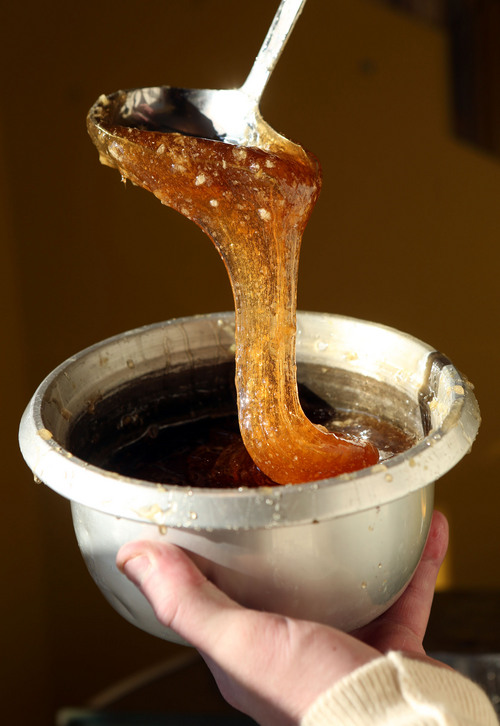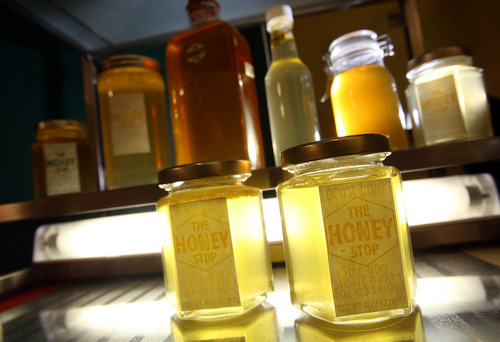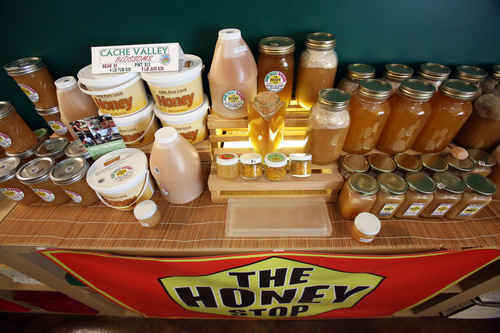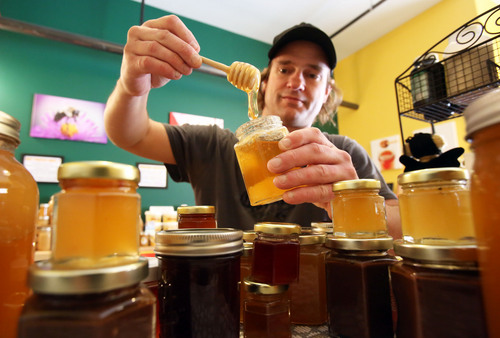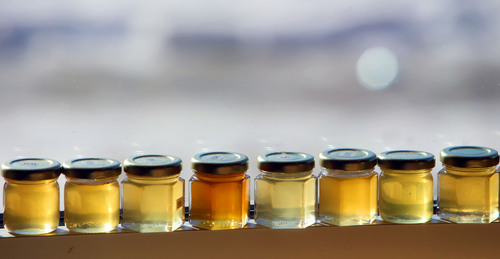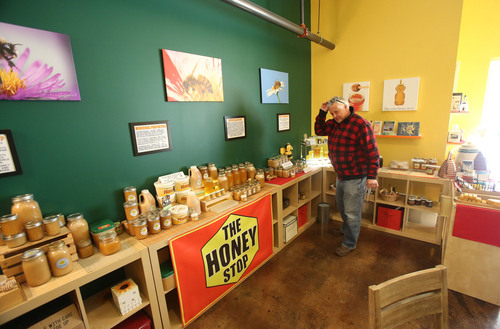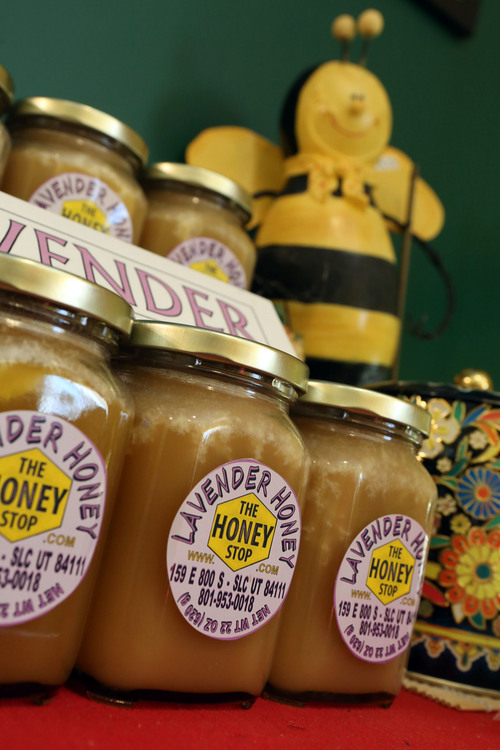This is an archived article that was published on sltrib.com in 2013, and information in the article may be outdated. It is provided only for personal research purposes and may not be reprinted.
Christmas is one of the most popular times to buy honey — either as a gift or for baking. And that means consumers need to watch for honey fraud, said Bevan Weed, president of the Wasatch Beekeeping Association.
With the bee population declining about 30 percent per year, the honey supply is limited and unscrupulous companies will manipulate the honey to boost profits.
"Honey packers bring in illegal honey or mix in corn syrup or other sweeteners to make the honey go farther," Weed said.
Earlier this year, five people and two U.S. honey processors were charged with federal crimes after an investigation showed they were illegally importing honey from China. The companies were heating the honey to such a high point that it eliminated all the pollen and officials can't track where it was coming from.
Here are some things to look for:
Question price • The first red flag for consumers should be the price. "If you find cheap honey, it's not sustainable and you've got to question where it's coming from," Weed said. In Utah, honey should cost about $6.50 per pound.
Avoid organic • Honey labeled "organic" is a misnomer. "The transient nature of honeybees makes it almost impossible to farm organic honey in a sustainable way since bees travel up to 5 miles every day and collect pollen from any plants available," he said. Most honey carrying the "organic" label is mass-produced overseas.
Buy raw • Consumers should look for the words "raw honey" on the label. This ensures that it is a natural product that has been minimally processed and has the most health benefits. "You don't want someone taking everything good about honey and stripping it down until nothing is left," said Pete Somers, owner of The Honey Stop, a honey-themed store at 159 E. 800 South in Salt Lake City.
Buy local • Weed and Somers say purchasing from a local beekeeper ensures that you're buying a quality raw product. Your money helps local beekeepers improve their hives, they say, which in turn helps the state's overall bee population.
For consumers looking for Utah-made raw honey, The Wasatch Beekeeping Association website at wasatchbeekeepers.com has a list of some Utah beekeepers. The Honey Stop also sells honeys from small Utah producers.
"These are products you're not going to find on the grocery store shelves," said Somers, who carries dozens of other bee products from candles and lip balm to containers and artwork.
Once you get your raw honey home, don't worry if it eventually turns solid.
"Crystallizing tells you that it's raw honey," Weed said. "All you need to do is warm it back up."
Skip the microwave and simply place the jar of honey in warm water and stir until the crystals dissolve.


